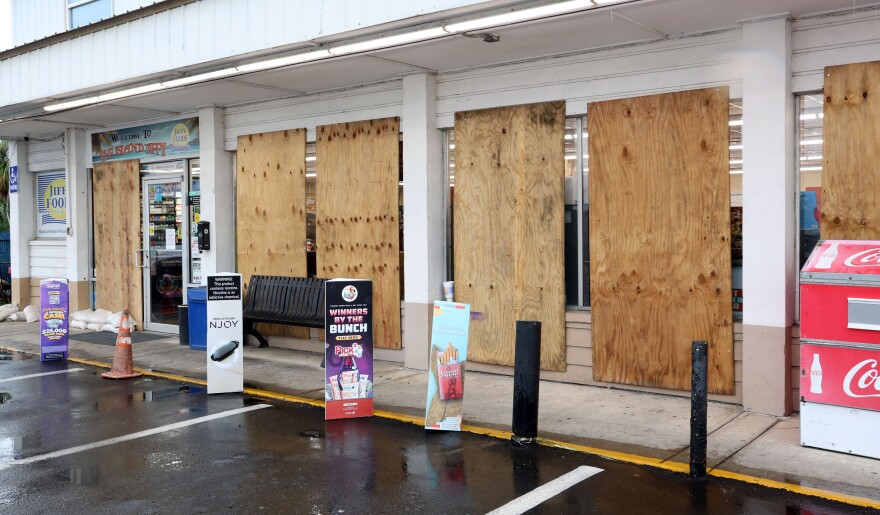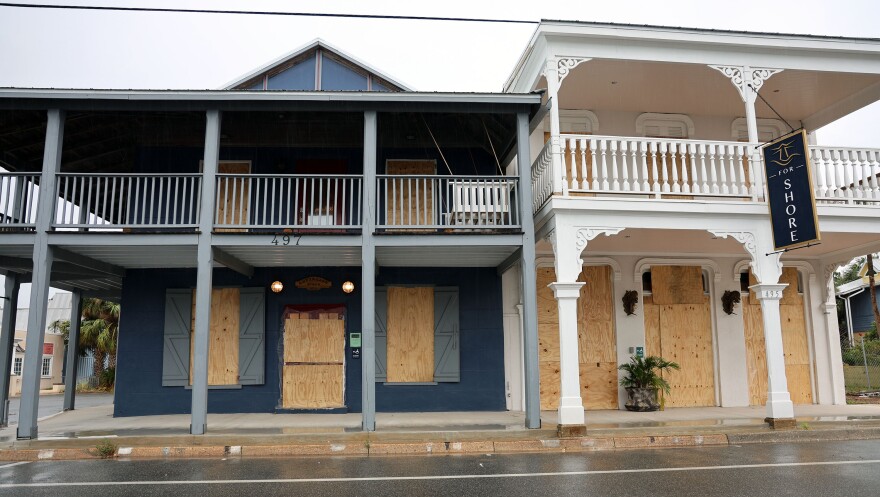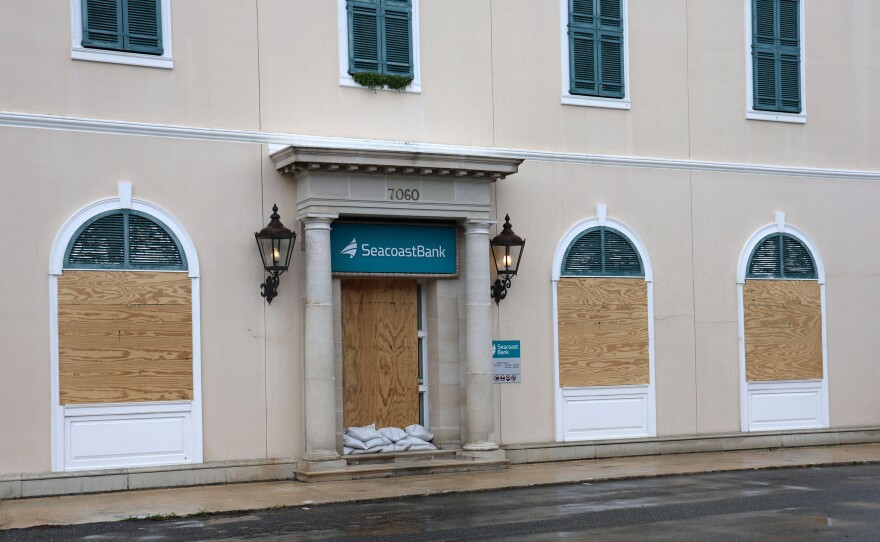Michael Jenkins walked his Wakulla County property alongside his German shepherd, Princess, searching for items to secure in preparation for Hurricane Helene.
A former Florida Highway Patrol trooper, Jenkins has seen the congestion typical of Florida interstates amid a hurricane.
To him, leaving would just mean getting stuck on the road trying to evacuate from the rural communities in Florida’s Big Bend region. “It’s going to be a disaster, it’s going to be a parking lot out there,” he said. “I would stay right here on my property, hunker down, put on my helmet, stare south and pray in the name of Jesus.”

The storm, which could make landfall as a Category 4 hurricane and create storm surges of up to 18 feet across parts of the Gulf Coast, prompted at least 16 Florida counties to issue mandatory evacuations, including three total evacuations in Franklin, Taylor and Wakulla counties. Everyone there was ordered to leave, period.
Despite the orders, some residents like Jenkins, 69, were sticking out the storm, convinced Helene will swerve away like previous hurricanes. Or they were staying out of convenience.

“Most of these redneck residents around here are going to stick a finger up, hold an American flag in the other hand and say, ‘I ain’t going nowhere,’ and they would pretty much be powerless to enforce that,” Jenkins said.
Jenkins said he strongly encourages others to evacuate.
Toni Raffield, a 36-year-old Franklin County resident, rode through Hurricane Michael in Gulf County while working as a correctional officer. There, she saw massive storm surges sweep over nearby cars and tornadoes form close to her, she said.
“It was a sight, like a PTSD moment,” she said.

Raffield’s property was packed with chickens, turkeys, livestock, dogs and children Tuesday night, and her mother was expected to join her. Conditions worsened Wednesday, so her family left for Santa Rosa, further west in the Panhandle.
Citrus County, along the coast north of Tampa, issued mandatory coastal evacuations due to the predicted flooding from storm surges.
For Crystal River’s Westin Farms, which has more than 13 acres used for horse training and boarding, deciding whether to pack or stay is a gamble – the farm is just outside the mandatory evacuation zone.

Shawn Little, 43, co-owns the farm with his wife, Heather. Together, they organized a hurricane protocol to minimize harm both to their family and their horses.
Wilder horses were moved, temporarily reducing their number from around 15 to four. Then Little stocked up on food, water and generators, though most of the farm is functional without power, he said.
The horses will be outside their pens and roaming their pasture, making it less likely they can be trapped or injured. If the property starts flooding with water, a trailer is ready to evacuate with the horses, he said.
“In the event we’ve got to leave, we’re out the door, locked and loaded within 30 minutes. We’re out. We’re gone,” he said.

Tags containing Little’s contact information are braided to each horse’s hair in case they escape during the storm. After Helene has cleared Westin Farms, Little plans on temporarily sheltering other people’s horses and livestock.
The historic fishing village of Cedar Key, which suffered a fire on Dock Street earlier this month, was also expected to see Helene’s effects. Cedar Key’s Fire Rescue department urged residents to leave in a Facebook post Wednesday afternoon.
Kegan Ward, 31, bought water and essentials for her family to stay during the storm. In the meantime, she was preparing the Jiffy Lube where she works for the storm surge, stacking items as high as possible to minimize flood damage.
“Cedar Key is very resilient,” she said. “It will come back, and it will come back stronger than before.”
___
This story was produced by Fresh Take Florida, a news service of the University of Florida College of Journalism and Communications. The reporter can be reached at aidanbush@ufl.edu. You can donate to support our students here.

